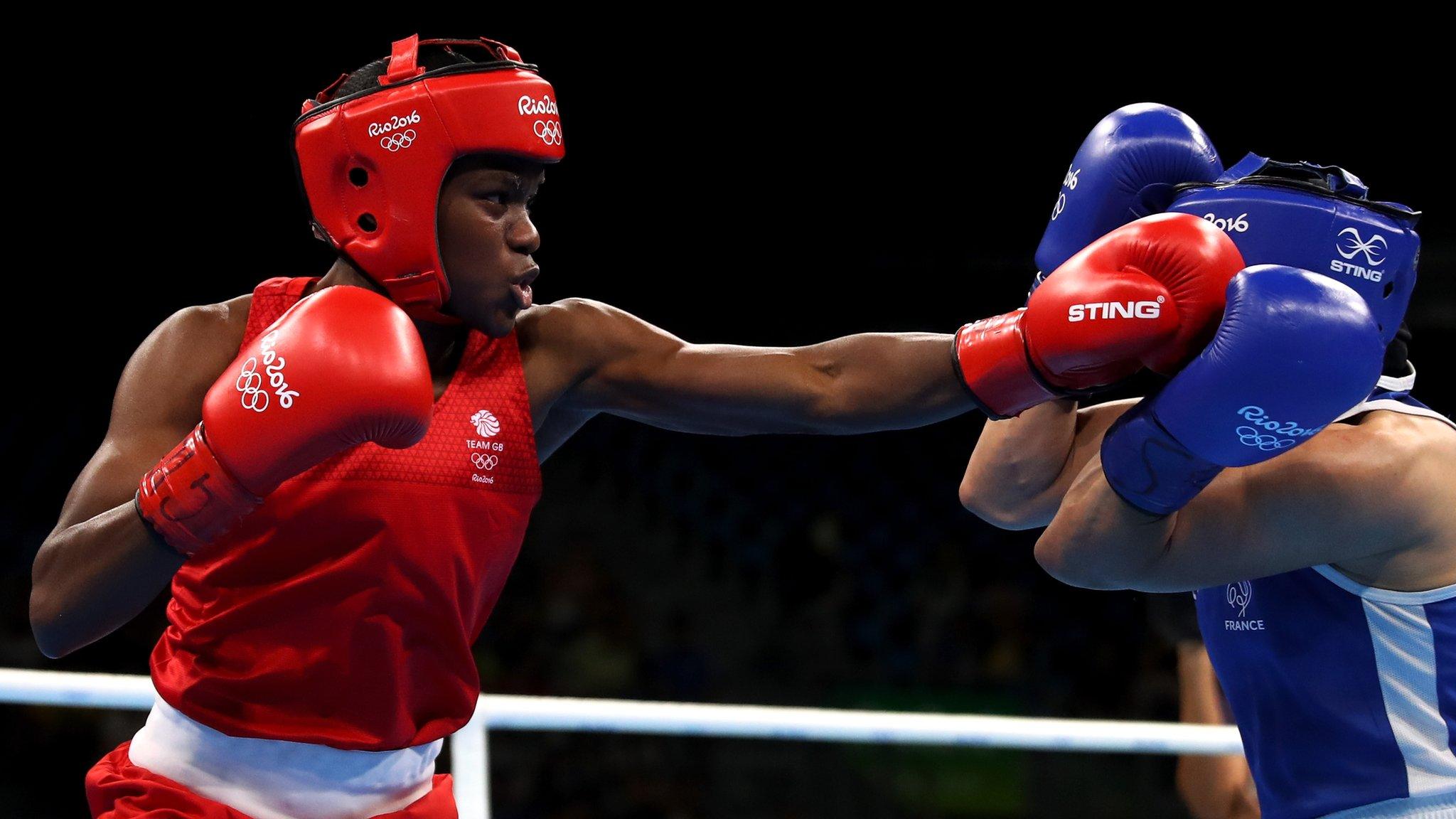Get Inspired: Wheelchair boxing group aims for Paralympics
- Published
The wheelchair boxers aiming for the Paralympics
Wheelchairs and boxing. It seems an odd combination, doesn't it? So, can the two really mix together to form one recognised sport?
Well, if you ask a group that call themselves the Wheeled Warriors,, external the resounding response is: "Absolutely! Why can't we fight?"
The Wheeled Warriors Boxing Organisation (WWBO) is the brainchild of Colin Wood, a sports coach from Coventry, who is going blind.
He wanted to create a sport that allowed disabled people to fight in the Paralympic Games.
"For us, it's mainly about helping disabled people to compete at the highest level and that ultimately means the Paralympics," said Wood.
So how does wheelchair boxing work?
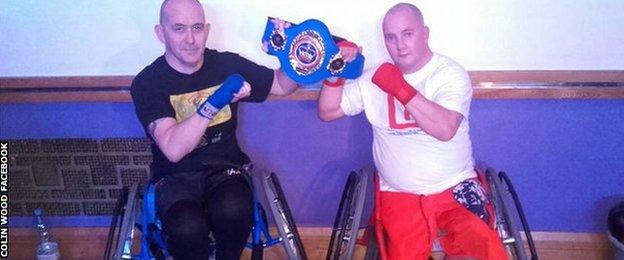
Paul Robinson (left) and Phil Bousfield are the UK's first two wheelchair boxers
At an underground nightclub in London two disabled fighters, Paul Robinson and Phil Bousfield, wrote their names in boxing history by becoming the first two British athletes to compete in wheelchairs.
"It was the scariest thing I've ever done in front of a big crowd," said Robinson, a 45-year-old engineer from Leeds.
"People must have thought it's some kind of April Fools joke, they couldn't imagine how it would work.
"But we are just like any other boxers. We train hard, throw punches and we can hit just as hard with our gloves - that's why we are protected by big head guards."
Robinson won the fight on points after three rounds of three minutes under Olympic-style amateur boxing rules, and he said it gave him a nostalgic feeling from his past.
"I used to do karate when I was younger before my accident," he said.
"I had a blood clot on my spinal cord in 1997 through karate which left me with paralysis. It's a big adjustment in your life when you go from being really active to being suddenly stuck in a wheelchair.
"Wheelchair boxing brings back all the things I used to love about karate because they're very similar. So it's good that I can do some of the things I used to do through this sport."
Fighters are classified by disability before then moving into a preferred weight class across six divisions explained Wood, who added that the sport is growing in popularity with people with all types of disabilities.
He now operates a wheelchair boxing Facebook group with a variety of members from several different countries.
"We had to look at all disabilities under the banner of inclusion, meaning everybody could have a chance to compete," said Wood.
"We are becoming an umbrella organisation for the first time, which means we are now working together to stay under the same rules and regulations."
Overcoming criticism
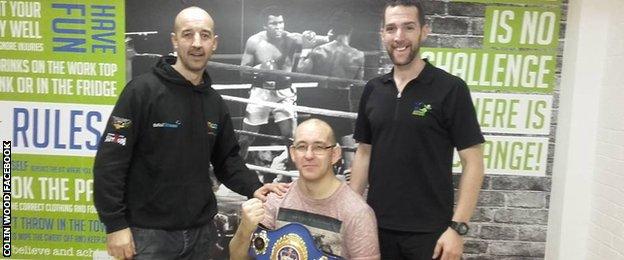
Colin Wood (left) founded the Wheeled Warriors Boxing Organisation (WWBO), which now has members from 18 countries
After posting a short video of the first fight on social media, the group received some negative comments with users being "unimpressed" and suggesting it lacked excitement.
But Robinson - who says he has received many such comments - wants people to try to see the sport from his view as a wheelchair user.
"I can understand why people are sceptical towards wheelchair boxing because they think we're in a vulnerable position," he said.
"But what we get out of it is a sense of participation and feeling included. It also increases the self-esteem and confidence you need with being in a wheelchair."
The group has received support from England Boxing, which has invited them to fight at its National Finals in Liverpool, external in front of 5,000 people and a national television audience.
"England Boxing can help us take it to the next level and they've already discussed a plan for a Para-boxing series event," Robinson added.
"They've been brilliant with us. Hopefully it will dispel some of the negativity we've had to face."
Paralympic ambitions
'Quite a big criteria for a sport to meet'
The ultimate goal for any disabled sportsperson is to represent their country in the Paralympics.
But the International Paralympic Committee (IPC) says wheelchair boxing can only be considered for Paralympic participation if it meets the right criteria.
"I'm interested to see what it has to offer," said Craig Spence, director of communications at the IPC.
"They need to send us a clear plan of how they are going to take the sport forward, and the sport must be widely and regularly practised in at least 32 countries on four continents before it can be considered for the Paralympic programme."
Robinson remains confident that wheelchair boxing can continue to grow on a global scale to achieve this.
"We're in talks with about 18 countries. Greece, Brazil, America and Canada are a few that are interested in joining us as an international organisation," he said.
"We should have wheelchair boxing on an international level very shortly."
Wood added: "Our ambitions for the Paralympics won't happen until 2024 at the earliest.
"Setting up the WWBO means we can give people a better understanding of wheelchair boxing.
"When we get to Paralympic level, we should have everything in place to showcase to the world what we can do."
Feeling inspired? Take a look at our handy guide about how to get into boxing.
- Published29 April 2016
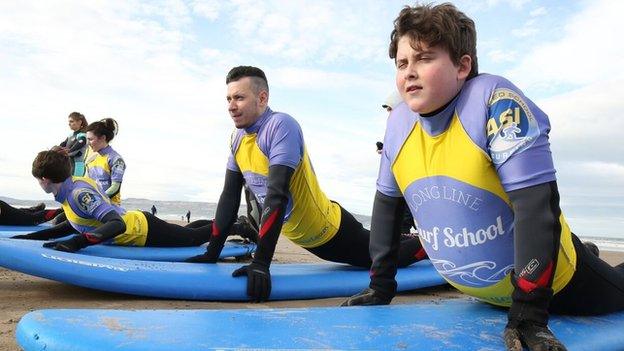
- Attribution
- Published26 April 2016
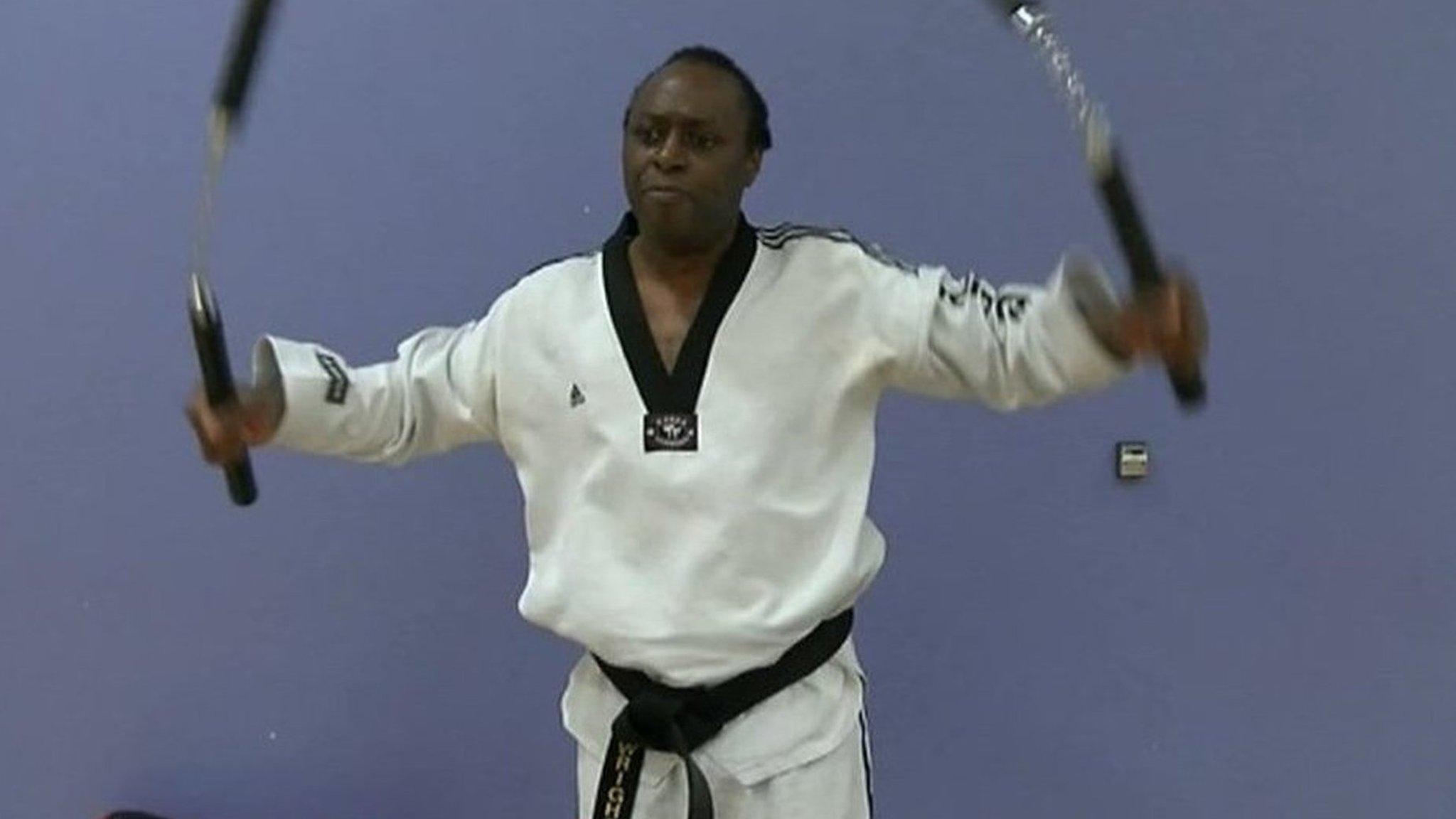
- Attribution
- Published26 February 2016
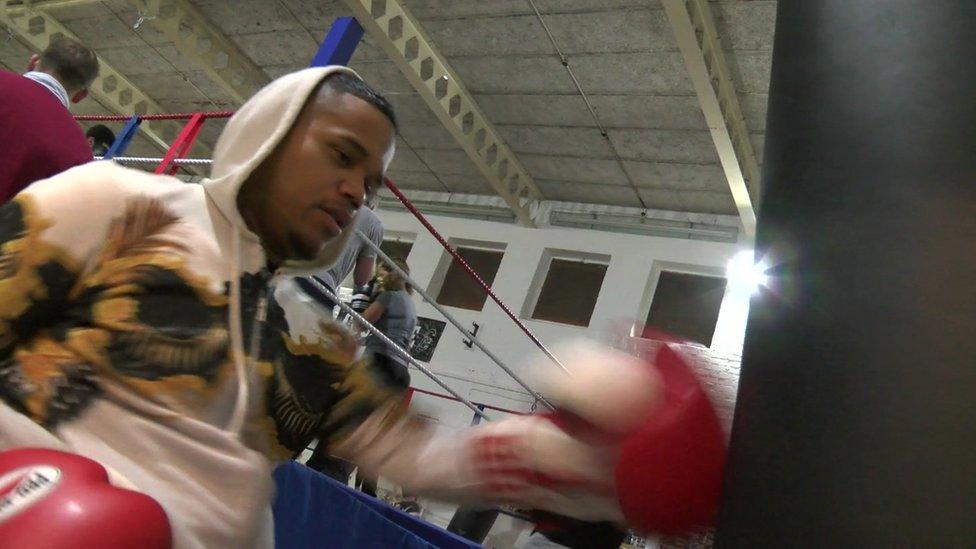
- Published11 June 2018
